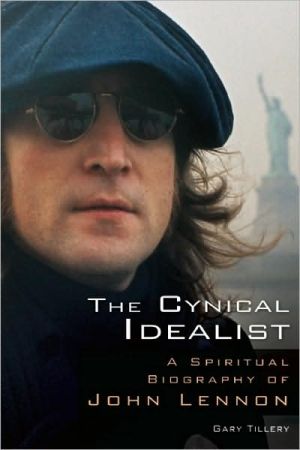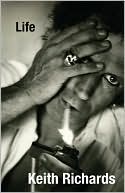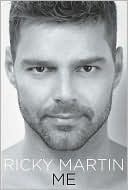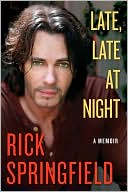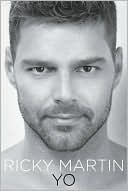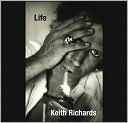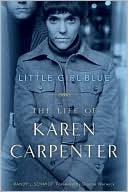The Cynical Idealist: A Spiritual Biography of John Lennon
Here, for the first time, is the spiritual odyssey of this remarkable artist, honored with John F. Kennedy and Ho Chi Minh in 1969 as Man of the Decade. Mining Lennon's lyrics, poetry, prose, and interviews, Gary Tillery tracks his thinking as it evolved from his troubled, working-class childhood throughout his many roles as Beatle, peacenik, social activist, and househusband.\ At the height of fame, in 1965 Lennon crashed and began an honest search for meaning. He came to believe that, for...
Search in google:
A radio playlist could easily follow John Lennon’s "Mind Games" with "Do Ya Think I’m Sexy." But comparing the two, it becomes obvious that Lennon had more in common with the great thinkers of any age than with the songwriters who were his contemporaries. Cynical Idealist reveals, for the first time, the spiritual odyssey of this extraordinary man. Out of a turbulent life, from his troubled, working-class childhood throughout his many roles — Beatle, peace advocate, social activist, househusband — Lennon managed to fashion a philosophy that elevates the human spirit and encourages people to work, individually and collectively, toward a better world. Like Socrates, Lennon wanted to stimulate people to think for themselves. "There ain’t no guru who can see through your eyes," he sings in "I Found Out." Cynical Idealist beautifully articulates this and the other lessons John Lennon passed along through his songs and through the example of his life. Publishers Weekly John Lennon will likely be remembered for two things: helping found the Beatles and writing the song “Imagine.” Those accomplishments, however, only scratch the surface of a complex and fascinating life. Writer and artist Tillery explores Lennon’s spirituality as it develops, beginning with childhood traumas, through his time with the Beatles, and finally, in his role as a social activist. Throughout his short life, Lennon fought many existential battles with himself and whatever he thought of as “God.” To interpret Lennon’s spiritual hunger, Tillery draws upon the work of Victor Frankl, the Austrian psychiatrist and WWII death camp survivor who wrote volumes on the importance of people finding meaning in their lives by focusing outward. The author characterizes Lennon as a loving man who, in the latter part of his life, was able to find some semblance of peace and to encourage others to do the same. Lennon searched for and sang about the truth, discarding religious indoctrination and accepted norms when they proved unhelpful. If this is Lennon’s legacy, one could do a lot worse. (Dec.)
Author's Note ixAcknowledgments xiIntroduction 1Part 1 The Roots of Rebellion1 Nowhere Land 112 Rock'n' Roll 173 Help! 25Part 2 The Long, Dark Cynical Night4 God 395 Love 516 Meditation 617 Cynicism 71Part 3 Life as a Work of Art8 Reborn Artist 879 Peace Advocate 9910 Social Activist 10911 Househusband 123Part 4 Cynical Idealism12 Superstars 13513 Mind Games 14314 Imagine 15115 Shining On 157Epilogue 167Chronology 169Notes 173Bibliography 187Index 193
\ Publishers WeeklyJohn Lennon will likely be remembered for two things: helping found the Beatles and writing the song “Imagine.” Those accomplishments, however, only scratch the surface of a complex and fascinating life. Writer and artist Tillery explores Lennon’s spirituality as it develops, beginning with childhood traumas, through his time with the Beatles, and finally, in his role as a social activist. Throughout his short life, Lennon fought many existential battles with himself and whatever he thought of as “God.” To interpret Lennon’s spiritual hunger, Tillery draws upon the work of Victor Frankl, the Austrian psychiatrist and WWII death camp survivor who wrote volumes on the importance of people finding meaning in their lives by focusing outward. The author characterizes Lennon as a loving man who, in the latter part of his life, was able to find some semblance of peace and to encourage others to do the same. Lennon searched for and sang about the truth, discarding religious indoctrination and accepted norms when they proved unhelpful. If this is Lennon’s legacy, one could do a lot worse. (Dec.)\ \
